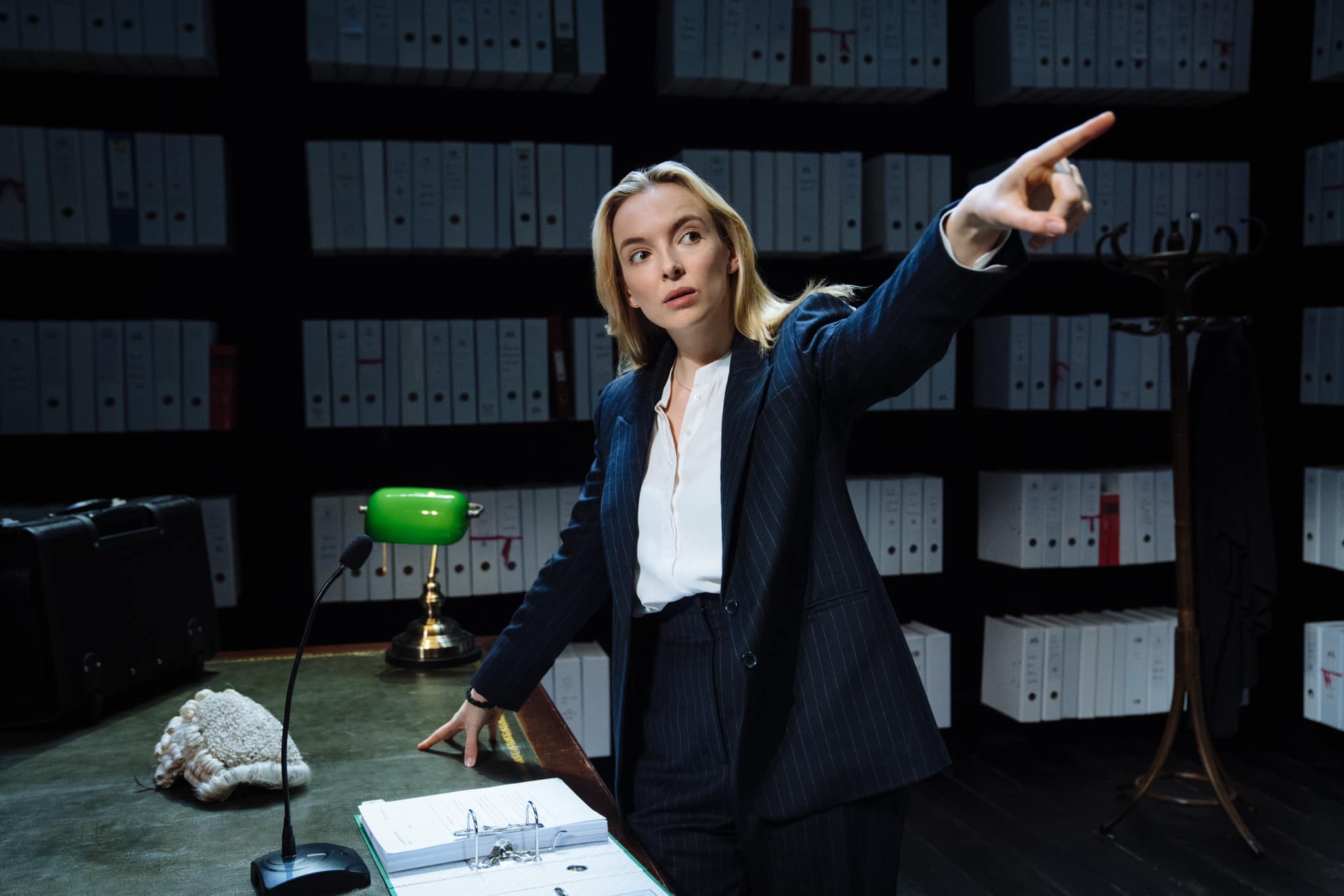Post Pandemic audiences have returned to theatre seeking uplift and distraction from the global woes, so it is a bold move by Empire Street Productions to stage a new straight play in the West End with a powerful heartfelt message for something to change in the legal system dealing with sexual assault cases. The statistics show over 170,000 recorded sexual assaults in the year to September 2021( an increase of 12% over the preceding year) and 37% of these were rapes. The programme highlights the long tortuous delay between filing an accusation and the case being heard in court. It also challenges the audience as they take their seats looking into the neatly ordered chambers of a sexual assault defence barrister to consider their own unconscious bias about sexual offences, the victims and the perpetrators and the meaning of consent. How would we act if selected for jury duty on such a case? This reflection that the programme prompts summarises not just the context but the narrative of the play. So, it requires a tour de force performance and some smart and slick direction to bring the arguments, so clearly set out in HHJ Angela Rafferty’s article, to life on the stage. Jodie Cromer duly delivers in a remarkable gripping one hundred-minute one-woman performance which marks her West End Debut.
This is a legal game of two halves. In the first section, she explores how she became a defence barrister in sexual assault cases, prides herself on never “coming second” (losing a case) and revels in the role of challenging and exposing the inconsistencies and gaps in the prosecution case. It’s a brilliant engaging performance, energetically prowling around the stage, setting the scenes, and grabbing the audience’s attention with glaring eyes and pointing fingers. She is at the top of her game; funny, witty, sexy, provocative and in control. There are tiny insights into her Liverpudlian background and some self-doubt which she has to overcome to succeed, culminating in a quick sexual encounter with Julian on the sofa of his chambers establishing that rape does not have to be between strangers in a first encounter.




